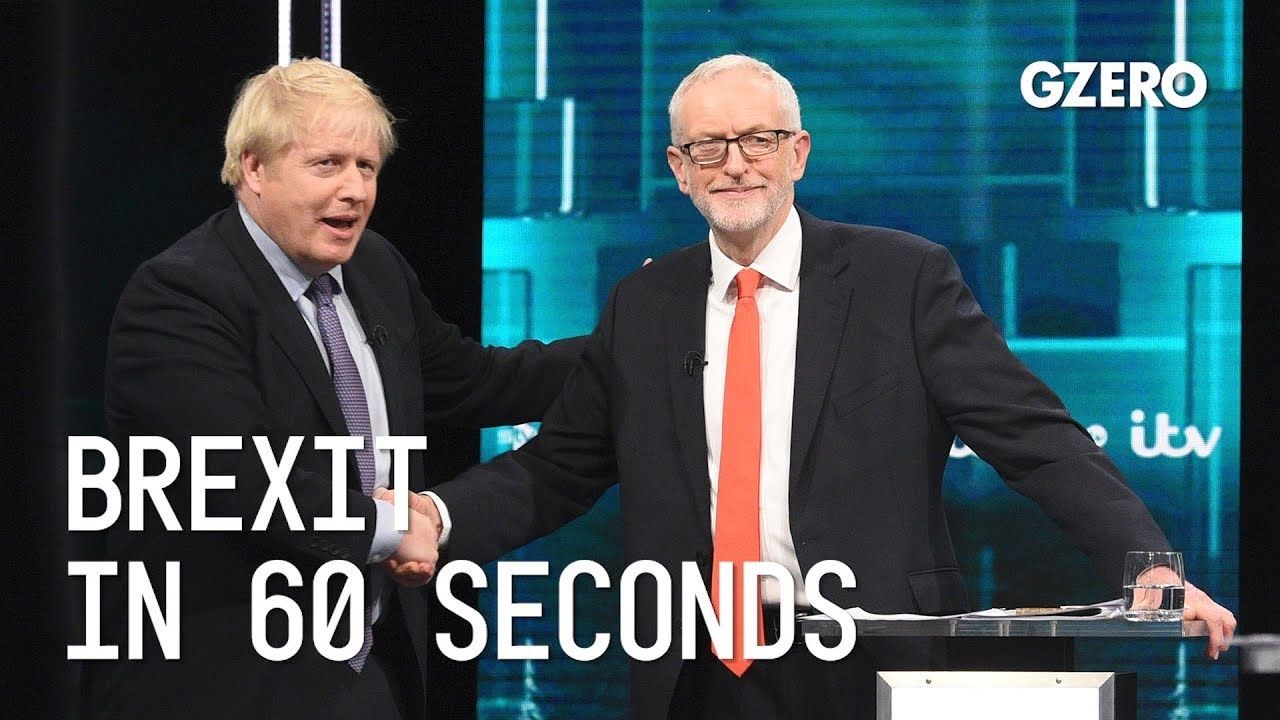In 60 Seconds
Who won the UK debate: Boris Johnson or Jeremy Corbyn?

Who won the UK debate: Boris Johnson or Jeremy Corbyn?

David Miliband:
The great thing about last night's general election debate was that the great British public rumbled at the weakest positions of all the parties. Boris Johnson, they laughed when he said that his fidelity to the truth could know no bounds, and Jeremy Corbyn, when he tried to say he had a clear policy on Brexit.
I think that the consequence of the debate will be to leave both sides relieved. Johnson didn't get knocked out and Corbyn came across, according to the polls, as more likable. The truth is that the plates haven't yet shifted. Neither is fully trusted, to put it mildly. Neither party is engendering great enthusiasm, and the election has not yet crystallized around a question. I'm not sure if it ever will. Because in the end, a general election is not the right way to resolve the Brexit issue. There's too much else going on. But at the moment, the Conservatives are in the lead. But it's not over.
Lord William Hague:
The question is how did the first election debate go between Boris Johnson and Jeremy Corbyn?
Well, it went. It happened. Both of them will be relieved about it, that they didn't do anything wrong. But is it an event that will have changed the course of this election so far, in which the conservatives have solidified their lead with the voters moving from the Brexit Party to them? So it seems. Will it have done that? Probably not. It isn't a game changer in the election. And so now the next question is going to be, as the party manifestos come out over the next week, is there something in those that changes the course of the election? Last time, there was for the Conservatives, they blew up their own campaign with their manifesto. Everybody on the Conservative side will be hoping that doesn't happen again.
Walmart is investing $350 billion in US manufacturing. Over two-thirds of the products Walmart buys are made, grown, or assembled in America, like healthy dried fruit from The Ugly Co. The sustainable fruit is sourced directly from fourth-generation farmers in Farmersville, California, and delivered to your neighborhood Walmart shelves. Discover how Walmart's investment is supporting communities and fueling jobs across the nation.
If you spend a week in Ukraine, you’ll get a long list of advice. Download the air raid app. Download the power outage app. Don’t use elevators – you’ll be trapped if the power goes out. Download the map of bomb shelters. Bring batteries and portable chargers, more than you think. Take a course on how to tie a tourniquet.
30%: A pair of surveys showed that Thailand’s progressive opposition party is leading the polls ahead of the Feb. 8 general election.